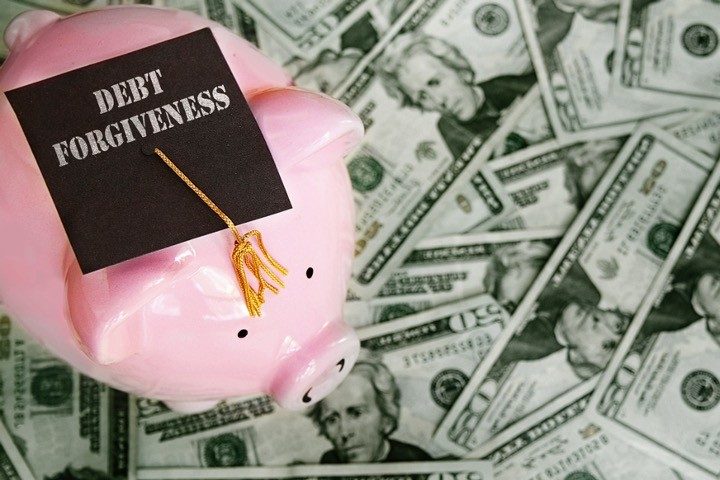
Despite the ruling of the Supreme Court (Biden v. Nebraska) which, in a 6-3 decision, held that President Joe Biden had exceeded his constitutional authority with his student loan forgiveness program, he is not only circumventing that ruling with a new plan that had been slated to begin in July of this year, but accelerating its implementation, as announced this week.
Biden had attempted to use the Higher Education Act, which in time of national emergency, such as a war, student college loan debt could be forgiven. This plan would have wiped out around $430 billion in student debt. Nebraska and five other states challenged this plan, arguing that it exceeded the authority of the secretary of education, acting under Biden’s guidance. The Biden administration had argued that the Covid-19 epidemic constituted a national emergency sufficient to cancel out the debt.
Actually, had Biden’s initial plan been upheld, the debt would not have been actually eliminated, but simply transferred to millions of American taxpayers. In other words, there is no such thing as a “free” college education. Someone pays for it.
Now, under his “SAVE” repayment plan, borrowers will be eligible for cancellation if their borrowing was $12,000 or less to attend college, and if they had made at least 10 years of payments. Representative Virginia Foxx, a North Carolina Republican who chairs the House Committee on Education and the Workforce, condemned Biden’s action, arguing that it will “dump even more kerosene on an already raging student loan fire.”
Biden argued that the “relief” offered would be of particular help to Americans who attended community colleges (which used to be called “junior colleges,” with two-year associate degrees rather than bachelor’s degrees). The argument is that those with smaller loan balances generally have a more difficult time paying off their loans than those who borrow more, because they often do not finish their degrees.
Opponents have argued that Biden’s efforts to forgive student loan debt is motivated by politics — that he is hoping to gain votes from those whose loans are dismissed in an expected tough reelection battle this year. Others contend that Biden and those who favor the plan want to make community college free (Biden campaigned on that plank, but Congress has so far rejected the idea).
And, just in case borrowers have not already enrolled in the plan to get their loans forgiven, the administration will email them that they can get their debt wiped out. And, no doubt, the email will credit Biden for helping them out.
Not only is Biden pushing this plan for those with lower levels of indebtedness, he is directing the U.S. Department of Education to come up with a plan to get around the Supreme Court ruling that struck down his original effort for a broader debt cancellation.
Of course, all of this is wrong for multiple reasons. First of all, one must ask why a person who did not pursue a college degree, either at a four-year university or a community college, should pay the debt of someone who did. Besides that, while many Americans think that these loans only pay for tuition, books, and student housing, the reality is that many students use them for all sorts of living expenses — not only food, rent, and other necessities, but more trivial expenses, as well. Some take vacations, for example, to places like the Bahamas, and now they expect Americans who did not attend college at all to pay for it.
Clearly, Biden and his allies believe this will help them politically in the upcoming election, as debt-ridden college graduates (and many who quit or flunked out) will reward him with a second term.
As the Supreme Court rightly ruled, no act of Congress authorizes Biden to take this action. After all, under the U.S. Constitution, Congress makes the laws, not the secretary of education or the president. The job of the president is to implement laws passed by Congress, not make his own if Congress refuses to pass his agenda.
Actually, Congress itself has no authority to involve itself in financing college educations. Under our federal system of government, that would be a decision left to the several states, if they were so inclined. While I might not think it wise for a state government to make college loans and then forgive them, that would be their decision, not mine.
Finally, this type of generosity — with other people’s money — leads to a bad end. As the late British Prime Minister Margaret Thatcher once said, “The problem with socialism, is that you eventually run out of other people’s money.”
And, once we go down the road of transferring wealth from one group of Americans to others, there will be a political incentive to offer more and more of these benefits. This has been true since the days of the Roman Republic, when politicians seeking office promised “bread and circuses.” In fact, such policies even preceded the Romans.
In our own country, President Grover Cleveland tried to put the brakes on this type of policy. During his first term of office, Cleveland vetoed a bill that would have given $10,000 for seed to some Texas farmers. In his veto message, Cleveland wrote, “I can find no warrant for such an appropriation in the Constitution, and I do not believe that the power and duty of the general government ought to be extended to the relief of individual suffering.”
He added, “The friendliness and charity of our countrymen can always be relied upon to relieve their fellow citizens in misfortune.… Federal aid in such cases encourages the expectation of paternal care on the part of the government and weakens the sturdiness of our national character.”
In other words, the federal government becomes like an indulgent parent to its citizens, who come to expect more and more benefits to be simply given to them from the public treasury — filled with the dollars of millions of American taxpayers.
Had he known our present situation, Cleveland could have added, “Eventually, Americans will come to expect free cell phones.”



